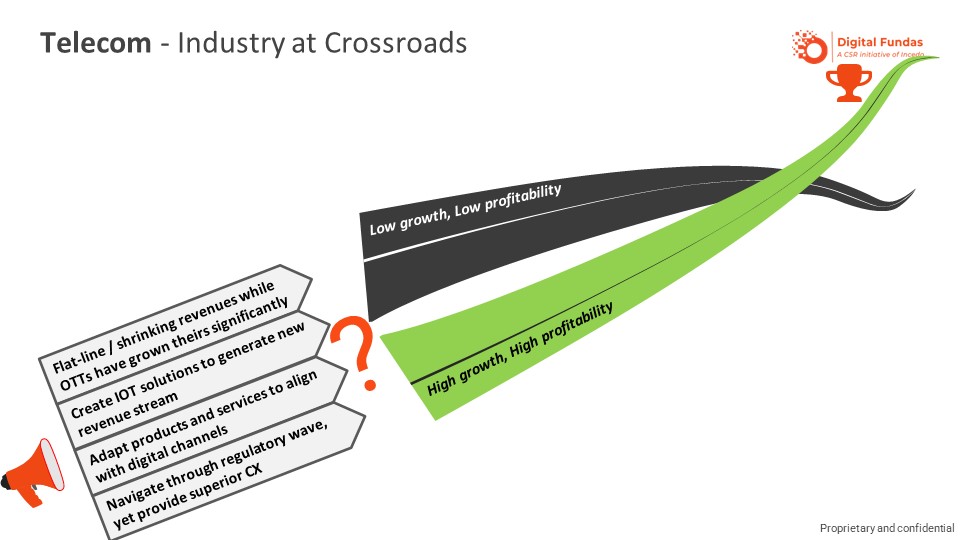The telecommunications Industry has evolved around technology advancements in the communications space. The industry has developed from being a provider of landline services to delivering high-speed broadband services with ubiquitous mobility.
The telco industry today is certainly at a point of inflexion, and in order to remain relevant in the rapidly changing marketplace, its long-standing aspiration of evolving from the legacy of providing connectivity services to a more value-added provider of content, applications and data services has to be accomplished. In fact, the rapid adoption of digital transformation by enterprises is a great opportunity for telcos globally. For telcos, it’s not just about the digital transformation that they are themselves undergoing, it is also about their being the digital enablers for other enterprises and sectors. GSMA has projected that the number of connected devices will grow from 7 billion in 2018 to 25 billion in 2025;13 and telecom operators are in a unique position to capitalize on this by providing innovative digital connectivity solutions that will form the backbone of the globally connected digital world in the near future.

Monitoring call and communication quality is crucial for ensuring that customers get the kind of telecom experience they deserve. Tracking and understanding their communication life cycle will be essential for telecom companies for another reason too – which is to do with data and privacy. Customers are terrified at the possibility of identity theft and financial loss. As a result, customers are demanding the same level of control over their personal data as they have over passwords to their bank accounts and email addresses. Telcos will need to work harder to create environments where people can feel safe.
Telco operators are working towards providing personalized experiences leveraging AI/ML and digital analytics capabilities, which, from a customer-centric point of view, is the right thing to do. However, customers don’t want to compromise on how their data is protected and stored. Telcos will need to ensure that their networks can protect consumer data in line with industry standards and to the satisfaction of their customers.
While there are headwinds, and given that the telecom industry is at a point of inflection, telcos have inherent strengths that they can use to turn the tables to their advantage. Telecom players have huge physical assets that act as an entry barrier; they generate massive amounts of customer data, given the ‘always on’ nature of customer usage, and provide a service that has become essential in many aspects of life. These advantages, coupled with what is perhaps the most significant technology change for the industry – 5G – can prove to be a force multiplier. While the telecom industry has undergone many technology upgrades, each more significant than the previous, 5G has everyone in the industry excited like never before. And there is a good reason for it.